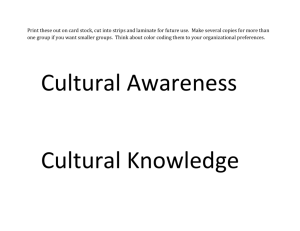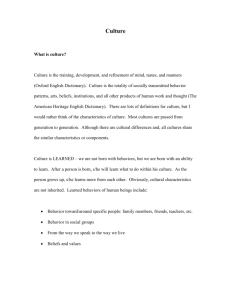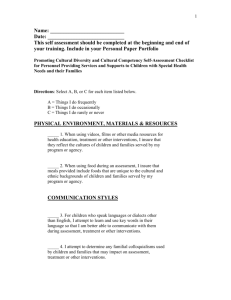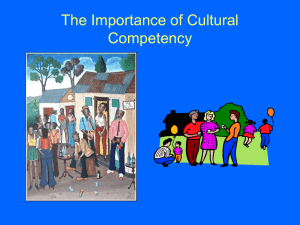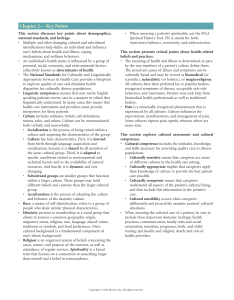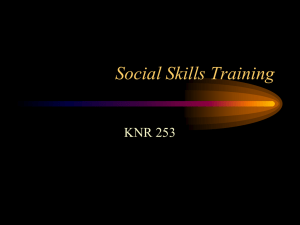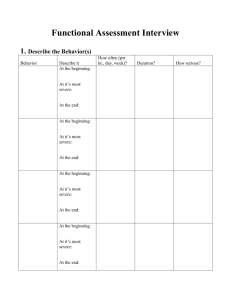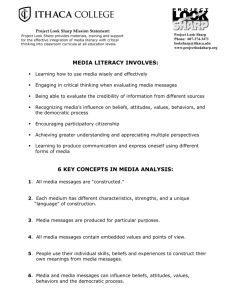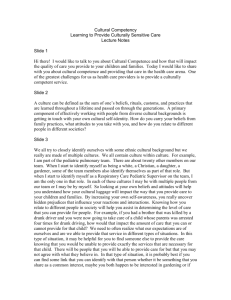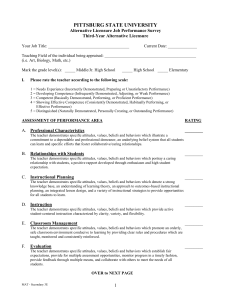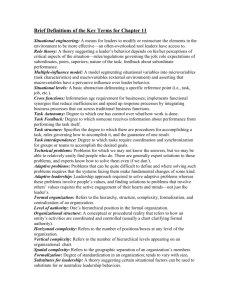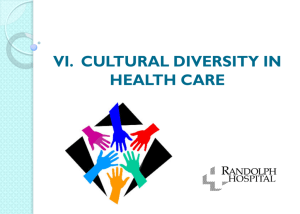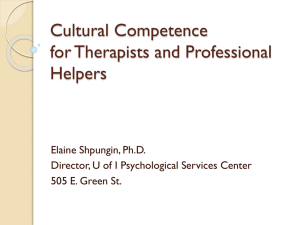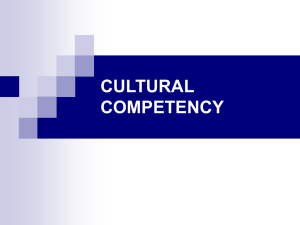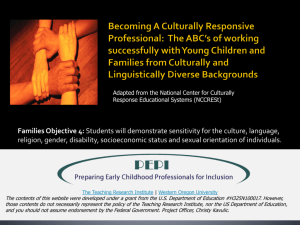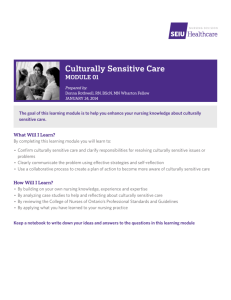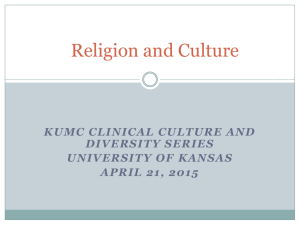Worksheet 1
advertisement
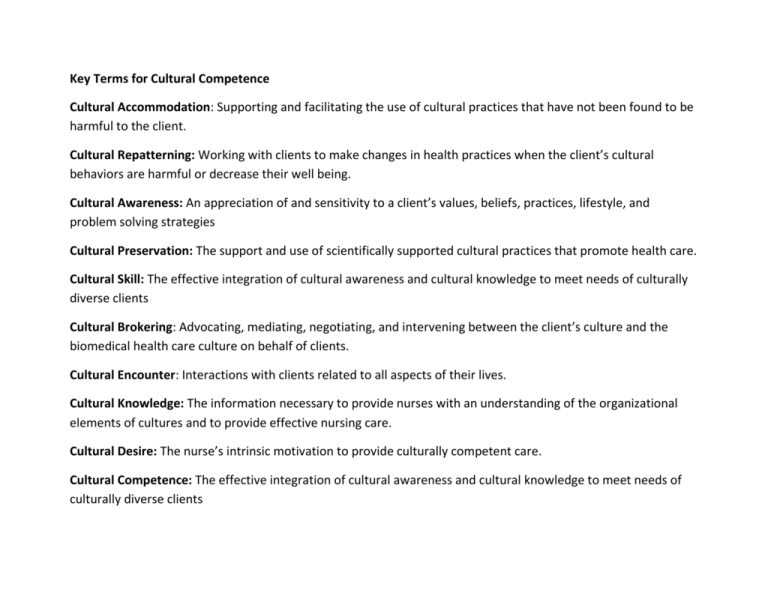
Key Terms for Cultural Competence Cultural Accommodation: Supporting and facilitating the use of cultural practices that have not been found to be harmful to the client. Cultural Repatterning: Working with clients to make changes in health practices when the client’s cultural behaviors are harmful or decrease their well being. Cultural Awareness: An appreciation of and sensitivity to a client’s values, beliefs, practices, lifestyle, and problem solving strategies Cultural Preservation: The support and use of scientifically supported cultural practices that promote health care. Cultural Skill: The effective integration of cultural awareness and cultural knowledge to meet needs of culturally diverse clients Cultural Brokering: Advocating, mediating, negotiating, and intervening between the client’s culture and the biomedical health care culture on behalf of clients. Cultural Encounter: Interactions with clients related to all aspects of their lives. Cultural Knowledge: The information necessary to provide nurses with an understanding of the organizational elements of cultures and to provide effective nursing care. Cultural Desire: The nurse’s intrinsic motivation to provide culturally competent care. Cultural Competence: The effective integration of cultural awareness and cultural knowledge to meet needs of culturally diverse clients Key Terms for barriers or inhibitors to developing cultural competence: Stereotyping: Attributing certain beliefs and behaviors about a group to an individual without giving adequate attention to individual differences Racism: A form of prejudice and refers to the belief that person who are born into a particular group are inferior. Ethnocentricity: A type of cultural prejudice at the cultural population level, is the belief that one’s own group determines the standards for behavior by which all other groups are to be judged. Cultural Blindness: Is the tendency to ignore all differences between cultures and to act as though the differences do not exist and act in order to treat all people the same. Cultural Conflict: Is a perceived threat that may arise from a misunderstanding of expectations between clients and nurses when either group is not aware of cultural differences. Culture Shock: Is the feeling of helplessness, discomfort, and disorientation experienced by an individual attempting to understand or effectively adapt to another cultural group that differs in practices, values and beliefs. It results from the anxiety caused by losing familiar sights, sounds and behaviors. Cultural Imposition: the process of imposing one’s values upon others. Key Terms for Basic Organizing Factors in a Culture: Communication: A continuous process by which one person may affect another through written or oral language, gestures, facial expressions, body language, space or other symbols Space: The physical area that persons need between themselves and others to feel comfortable. Social Organization: The way in which a cultural group structures itself around the family to carry out role functions. Behaviors are prescribed for significant life events, such as birth , death, childbearing, child rearing, and illness. Time Perception: The meaning and influence of time from a cultural perspective. This refers to a individual’s focus on the past, the present, or the future. Environmental Control: Refers to the relationships between humans and nature. Cultural groups might perceive humans as having mastery over nature, being dominated by nature or having a harmonious relationship with nature. Biological Variations: The physical, biological and physiological differences that exist and distinguish on racial group from another. Culture and Nutrition: Unique nutritional practices that are an integral part of the culture
